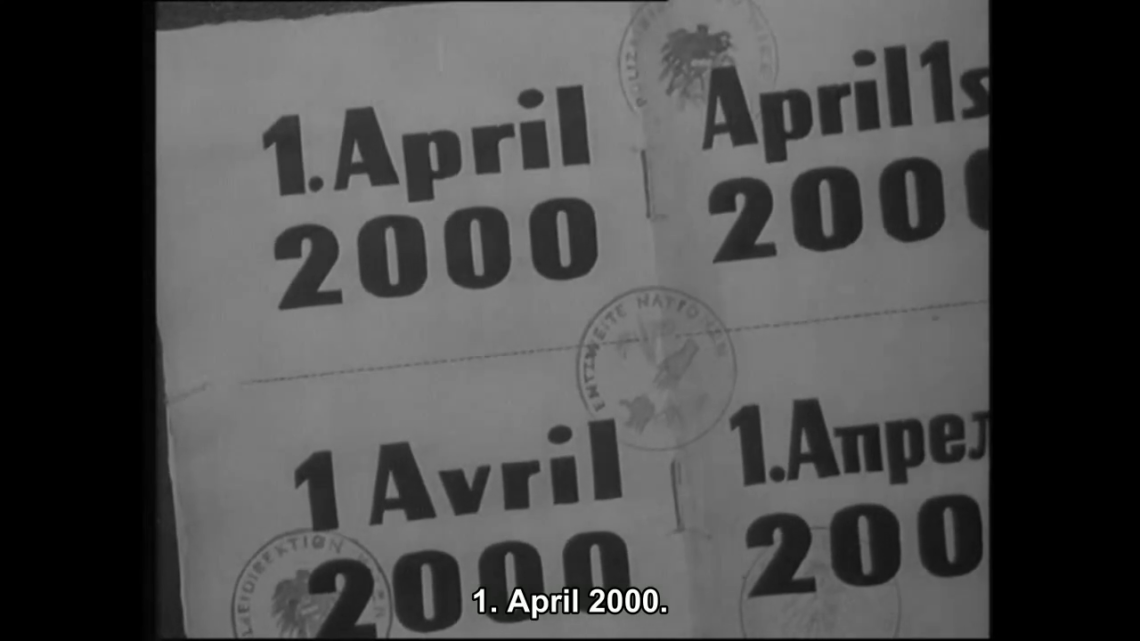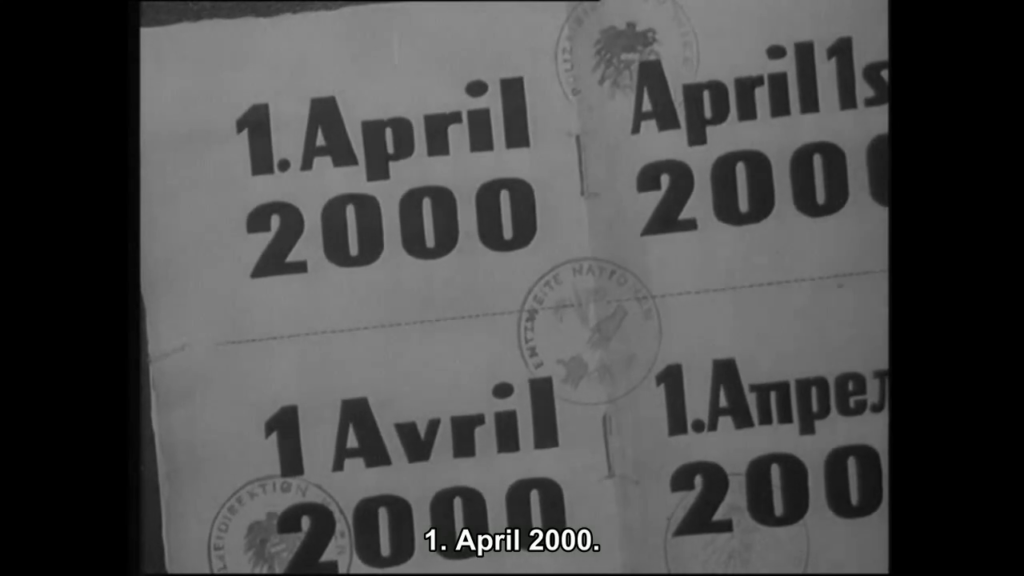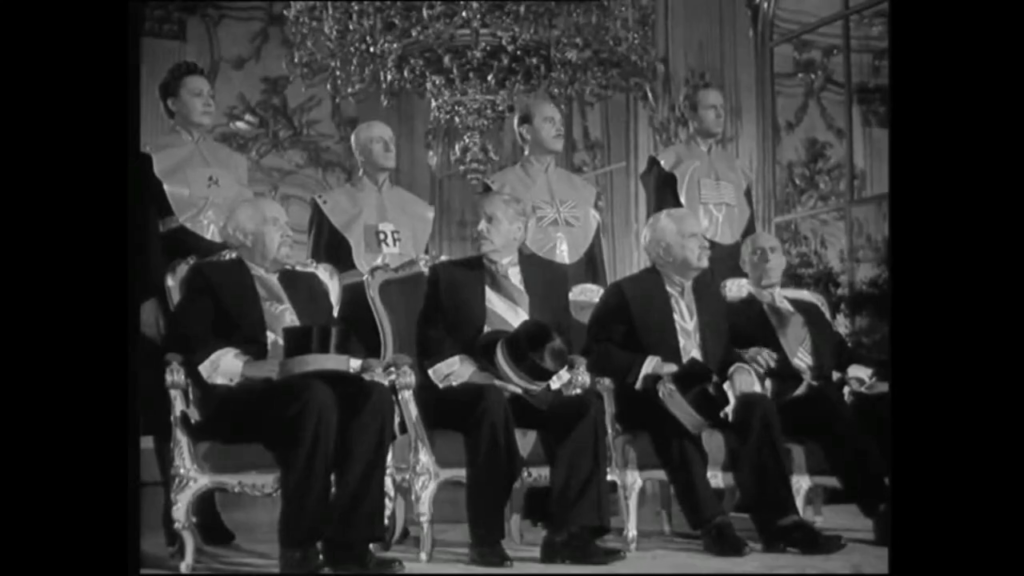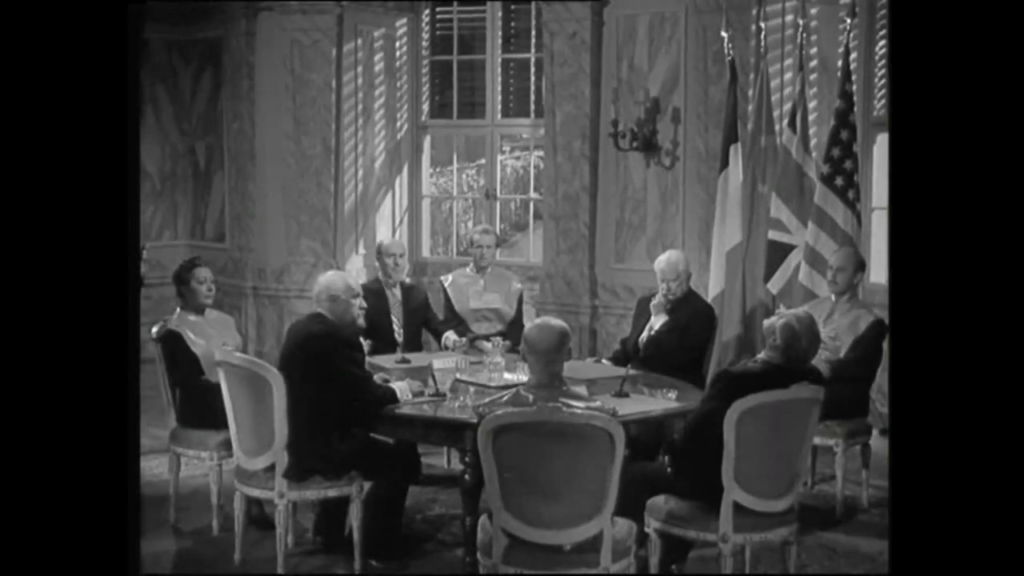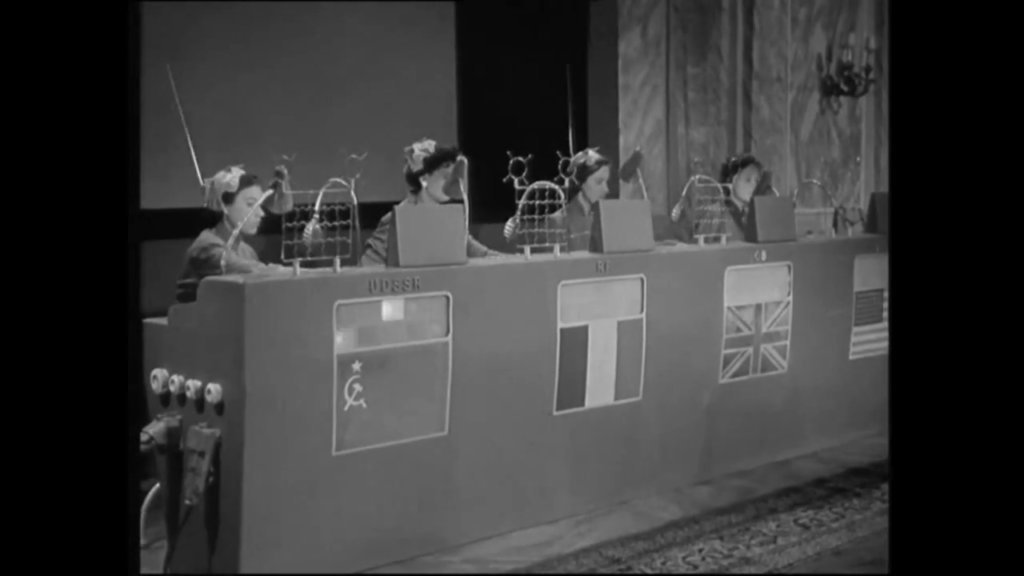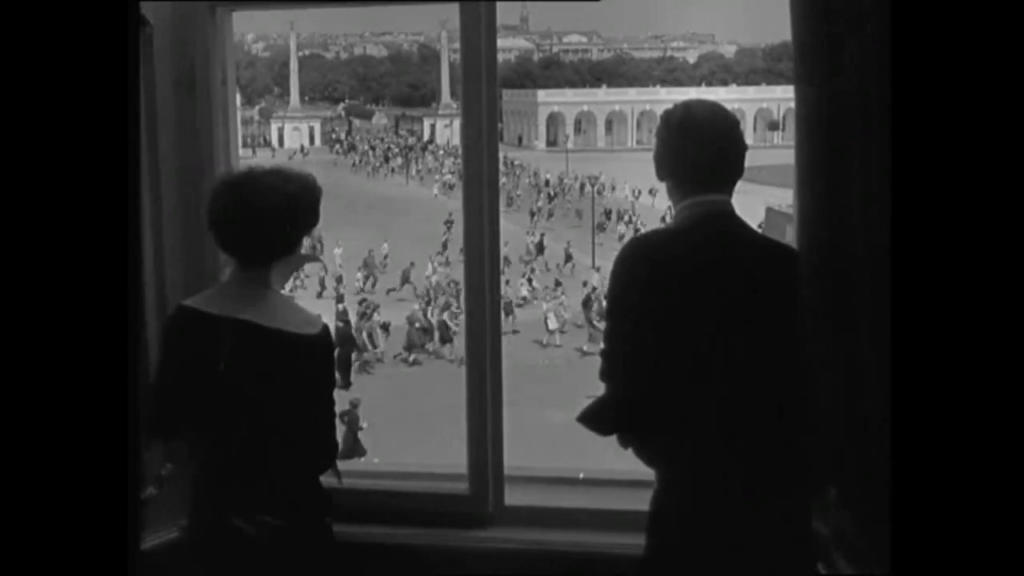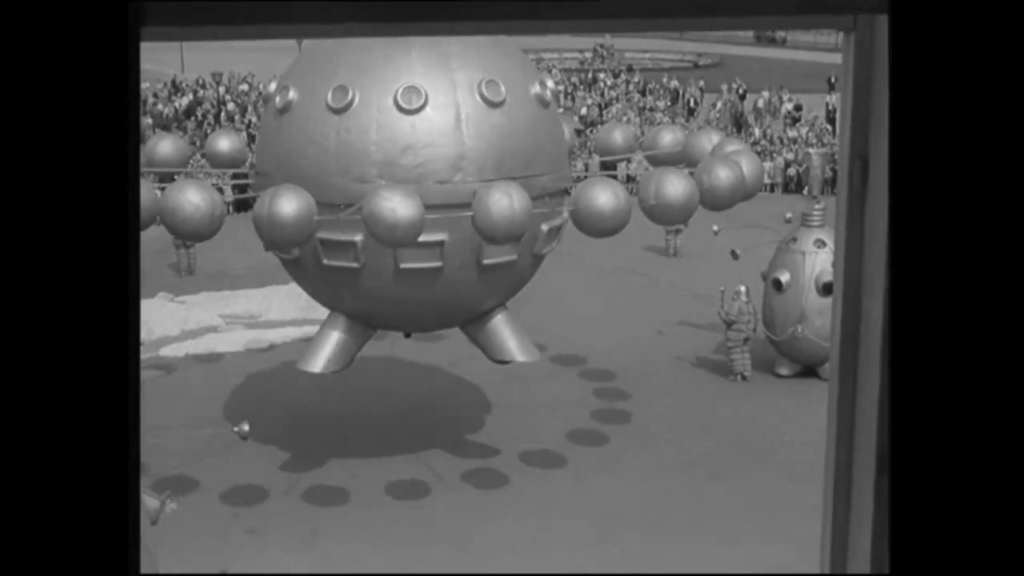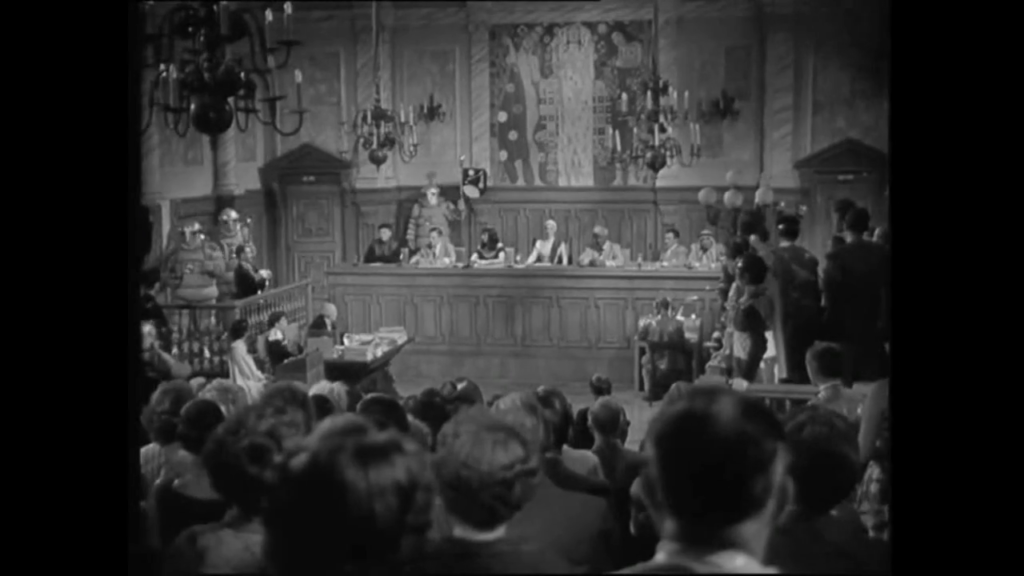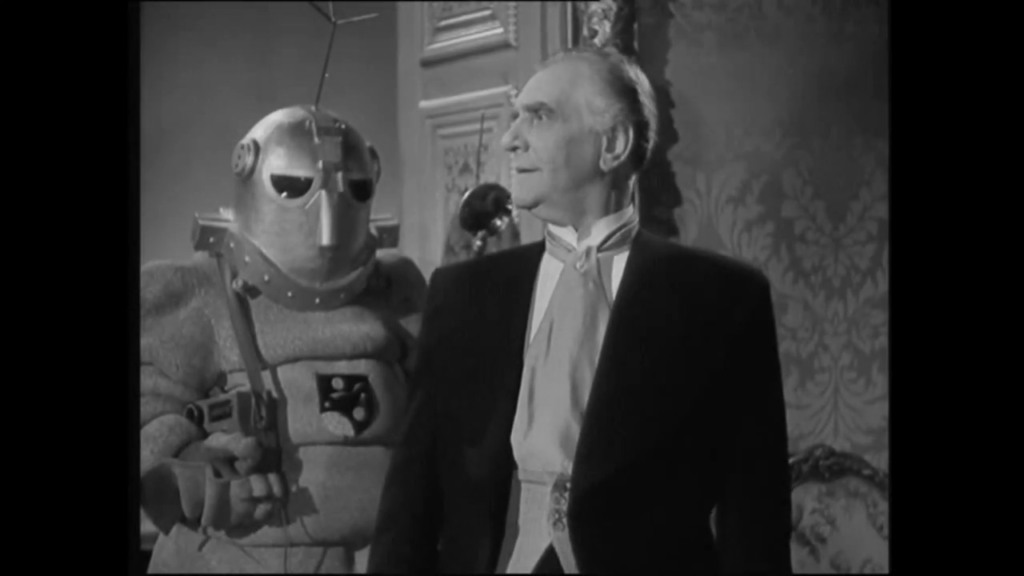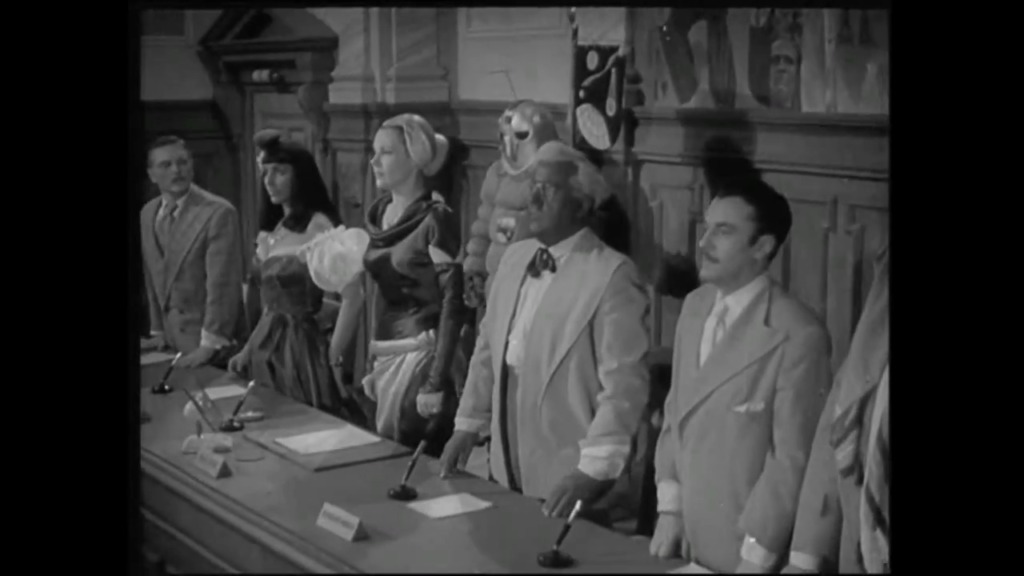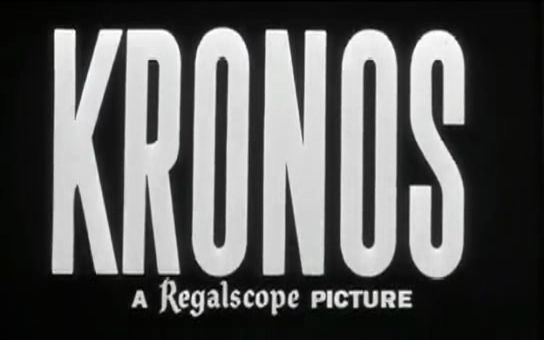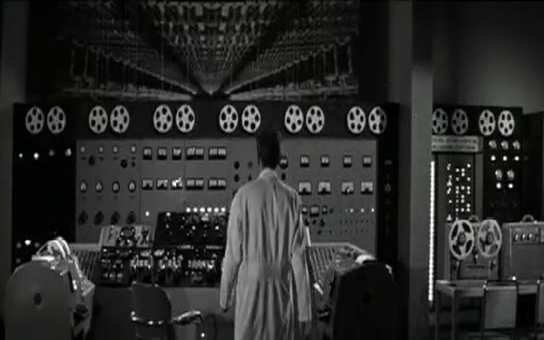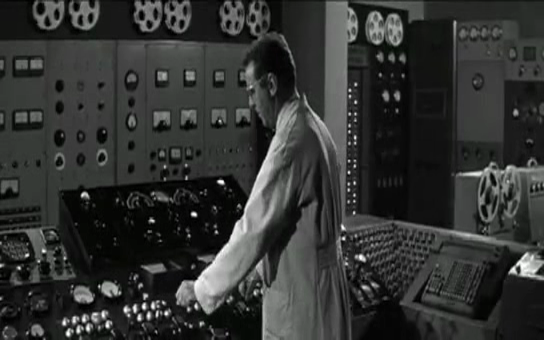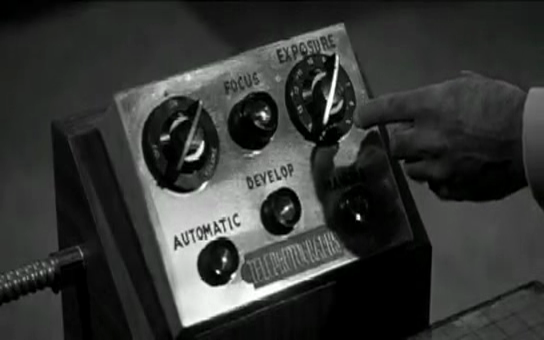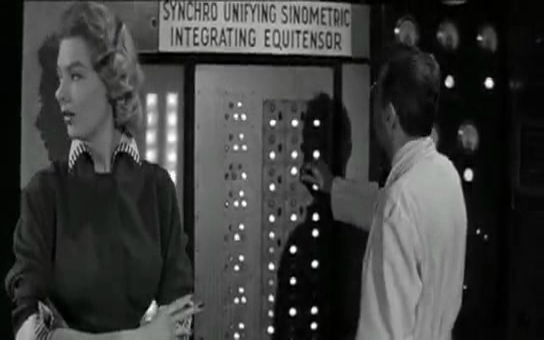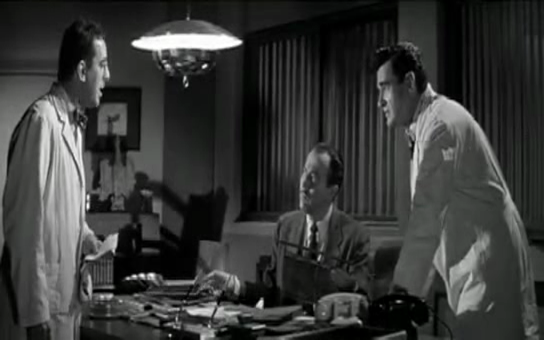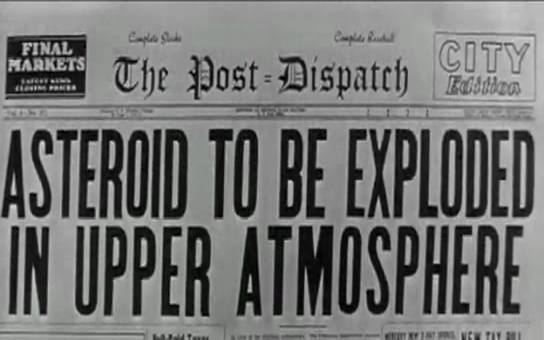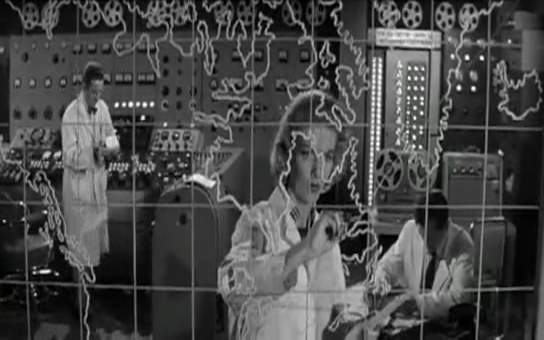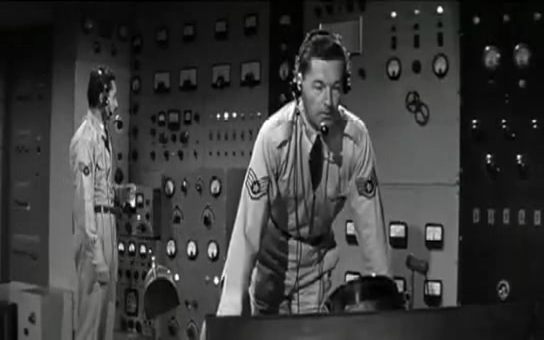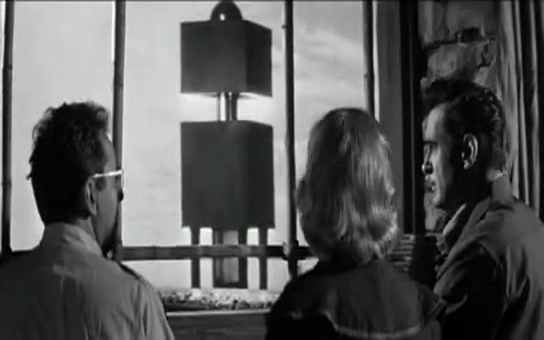-
#352 – 1. April 2000
1. April 2000 (1952)
Film review #352
Director: Wolfgang Liebeneiner
SYNOPSIS: In the year 2000, the newly elected Austrian Prime Minister declares that the country will no longer be making payments to the World Union and declares its independence of the Allied forces that have overseen it after the end of the second world war. This brings down the wrath of the World Union, whose president sees them as a threat to world peace and arrives in Austria in order to put the Austrian Prime Minister on trial that very crime. He defends himself by showing the World Union that he is no threat, and that the rich cultural history of Austria is a legacy of peace and unity.
THOUGHTS/ANALYSIS: 1. April 2000 is a 1952 Austrian sci-fi political satire film.The film takes place – as the title suggests – in the year 2000, some forty eight years after the film was released, and sets the scene as a possible future based on the (then) current situation in the world following the second world war. The backstory being that Austria, having been a part of the alliance that lost the war, were subject to oversight from the winning alliance and had to make reparations to them. The film opens up with a newly elected Austrian prime minister announcing that he is refusing to pay anymore reparations to the World Union (a not-so-subtle parody of the United Nations), and is declaring Austria independent of the allied powers of the U.S., U.K., Germany and the USSR and their oversight. The citizens are overjoyed at this, but this act of rebellion does not go unnoticed at the World Union, and they have sent their troops and president to “maintain peace.” They put the prime minister on trial, accused of disrupting world peace, and he must defend himself and his country by showing the World Union that they simply wish to be free, and present no threat. This is done through showing the various achievements in Austria throughout history, and its value in the larger world. The film goes through the various stages of this trial, with the prime minister showing evidence that acts as a historical lesson for the World Union and the viewer. The message of the film is rather plain to see, even if it is set in the future: that there is no need for the allied powers to occupy and oversee Austria to prevent another world war, and it is a country that simply needs to be free…and this is as true in 1952 as it is in the speculative year 2000. All the arguments made in the film could be made for the time that the film was made, but the setting of the future shows that there could really be no end to the reparations and oversight, and there is no ideal time at which it should be stopped, so it should be ceased immediately. The film’s strength lies in its informative message, while still managing to be entertaining, with an interesting cast of characters, and the almost haphazard approach of the prime minister creating his defence with no time to plan further shows that their is no grand scheme or plan in his head, just the simple idea of freedom for his country.
The setting of the year 2000 is a future filled with super fast rockets for travel, laser guns and ridiculous headgear for TV camera crews…but apart from that nothing seems vastly different in this future. This may be because Austria cannot afford any new technological advances under its oversight, or simply that the film is focused more on showing Austria’s past, and so it being too futuristic would distract from that. Either way, these futuristic elements are shown to do nothing to fix the basic problems that the film is trying to address. For example, when the World Union’s rocket is heading for Austria with its troops, they accidentally go to Australia instead, which shows their lack of consideration or interest in those countries it is leaving behind technologically, as well as a typical bureaucratic blunder people can make. The effects for the spaceships are quite well done, as they land around Austria’s cultural landmarks it gives it a real sense of authenticity. On the other hand, an element that hasn’t aged well at all is having all the different representatives of the countries of the world (black, Arab, Chinese) all being portrayed by white actors, which doesn’t really look good.
The satirical nature of the film means that a lot of the content is not too be taken too seriously, nevertheless there is a serious message that the Austrian government (who funded the film) wanted to project: that they were a legitimate country with a rich history, and should be taken seriously. Some of the plans of the prime minister include putting on plays and composing songs to persuade the World Union members to give Austria its independence, all of which are executed in a comedic manner that you can’t really take too seriously. The plot does go all over the place, and the ending makes the whole trial redundant anyway, which further emphasises the satirical, comedic aspect. Overall, 1. April 2000 is an interesting film that is informative, satirical and is a protest at the then current state of affairs through a science-fiction lens. While there is a serious message, it is wrapped up in theatrics, silly looking futuristic technology and ad-hoc schemes that are entertaining to watch while also not diluting the historical figures and events that it shows. Some of the dialogue and characters are outdated, and the story feels very loose in places, but again, overall it is an interesting look at a time where the world was rebuilding, and how the future might unfold without anything really changing.
-
#10 – Kronos (1957)
Kronos (1957)
Film review #10
dir. Kurt Neumann
An old B-movie sci-fi from the 1950s. Kronos is not very well known, but has some interesting aspects to it.
When a strange asteroid is spotted in space, two scientists at Lab Central try to work out it’s origins. When it makes unnatural movements and deviations from it’s course, Dr Leslie Gaskell and Dr. Arnold Kulver suspect there may be something more to it. At the same time, a strange spark of light has taken possession of the Labs director: Dr. Hubbard Elliot. The asteroid continues on a collision course with Earth and panic spreads across North America, fearing it will crash onto a city. These fears are unfounded, when it crashes into the Pacific Ocean, near Mexico.
The scientists, along with Vera Hunter go to Mexico to investigate, and while they’re there, a strange construct appears. This “monster” (named Kronos by Gaskell, after the monster of Greek mythology), proceeds to march upon a power station to absorb it’s energy. Dr. Elliot is fighting the influence of the alien intelligence intermittently, and after Kronos absorbs the energy of a H-bomb, he regains control of himself to reveal the purpose of Kronos: To drain the planet of all it’s energy. In a race against time to stop Kronos from reaching the atomic weapons facility and its nearly unlimited energy, Leslie and Arnold engineer a plan to reverse the charge of Kronos’s energy convertors, effectively destroying itself.
The plot may seem a bit confusing, but it addresses issues such as energy consumption before many other films or TV series did. The science of the movie moves between factual and fictional rather seamlessly, making it hard to pinpoint where the real end science ends, and the fictional science begins. This, however, is probably a good thing for movies such as this, which are released onto a general public that really isn’t that clued in on science, namely the American movie-goers of the 1950s.
On that subject, the movie is very much an American movie. Movie staples such as the spinning newspapers aid the transition of science into the cinema mainstream. A sound move perhaps, since movies in the same genre from the 50’s, such as The Day The Earth Stood Still don’t rely much on the technical science, and generally put an alien or scientific spin on common human dramas, which is not the case for Kronos.
The main characters are very much the same as every other movie character at that time in America, with a little cowboy attitude, and the relationship between Leslie and Vera, which seems very normal, talking about going to the movie themselves, and frolicking on the beach. Perhaps this humanises the notion of what sort of person a scientist is, as their perception at this time would be of someone who develops weapons of mass destruction, rather than someone who furthers knowledge and understanding. The character of Dr. Arnold Kulver probably fits the traditional scientist model more so, with his glasses, and bow tie, and how he seems to have more of a relationship with the computer SUSIE than an actual woman. He plays more of a “sidekick” role, which fits with a lot of American drama at the time, putting the role of the “brainbox” as the assistant, and never as the star. Though Leslie is a scientist too, he rarely plays to the traditional convention of one like Arnold does.
Apparently, the entire movie was filmed in just two weeks. Which seems rather quick even for the 1950s. There is a lot of stock footage, and there are only a few actual locations/sets used, and the special effects are quite underwhelming. Lab Central has a very postmodern look to it, with its dome lighting and physic models, and a rather impressive looking computer called SUSIE (short for Synchro Unifying Sinometric Integrating Equitensor…sounds either very complex or just nonsense depending on your perspective). This computer may look rather grand and complex, but its function could probably be accomplished now using a computer about a tenth of its size. Back when it was produced though, when people had no concept of personal computers, this is what computers would have been recognised as: Large sets of blinking lights and switches that occupy entire rooms.
There’s a small religious reference in this movie. When the scientists go to Mexico, they stay with a man who (though he speaks entirely Mexican), is clearly religious, with a cross on the wall, and who kisses the cross on his neck when Kronos appears. It seems science-fiction movies from this era always find a way to shoehorn religion in their movies somewhere. Like The Day The Earth Stood Still as well, it addresses the danger of atomic weapons, though not in their destructive power, but how they feed Kronos to make it more powerful.
So while nothing particularly special in terms of production, Kronos offers a view of the perception of science in the 1950s. The plot is riddled with scientific jargon, and the plot requires some deduction since it isn’t explained until very late on. A disaster movie that is powered by, and eventually stopped by science.
